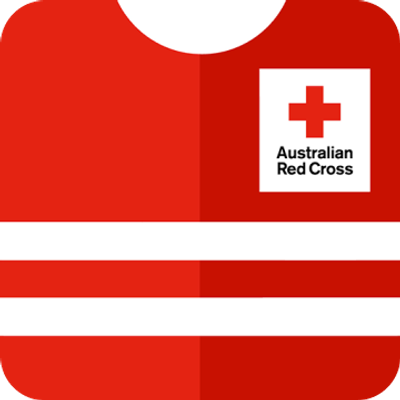Long-term help for coping with uncertainty, managing stress, and moving forward
Regional communities that have faced natural disasters like bushfires and floods reported feeling forgotten 3-6 months after the event because support organisations have moved resources on to the next disaster.
In a way, it's similar to losing a loved one. Everyone flocks to you and helps plan the funeral, but 3-6 months after, you’re often on your own to deal with feelings like grief, loneliness, and isolation.
No matter how alone you might feel, help is available every step of the way, even five and ten years down the track.

Even if things are beginning to look normal on the outside, it’s okay if you’re feeling unsettled or having trouble coping. A lot of people feel the emotional impacts of natural disasters for up to three years, if not longer.
Remember, natural disasters can be traumatic experiences, so it makes sense if you’re still experiencing anxiety symptoms, intrusive thoughts, sleep problems, hypervigilance (feeling jumpy or on edge), or panic attacks.
On this page, you'll find information on:
- How self-esteem can impact your mental health
- The importance of creating and leaning on a support system
- Understanding triggers and unhealthy coping habits
- Therapies that can help with processing emotions and trauma
- Using your experience to mentally prepare for future events.
Scroll down to learn more.
Self-esteem and recovery
Self-esteem is a key way that we get through challenging times because it helps us:
- Confidently express our needs and share ideas
- Be open to trying new things
- Recognise our value beyond our mistakes
- Have healthy relationships
- Trust ourselves
- Ask for help.
If you have low self-esteem, it can be difficult to feel worthy of support or believe that you’re capable of rebuilding.
Healthy self-esteem, on the other hand, can give us a sense of hope and optimism, which is important for maintaining motivation and perseverance throughout the recovery process.
Click here to learn more about self-esteem and ways you can raise yours.
Creating a support system
“Just talking openly and honestly to the people in our village helps so much. You know you are NOT alone.”
Research shows that people with strong connections with family, friends, and their community cope best in times of crisis. Unfortunately, natural disasters can fuel loneliness and create further isolation.
If possible, try to create a support network of people who you can:
- Call for a chat
- Go for a walk with
- Meet up with for a coffee
- Ask for help when you're feeling overwhelmed
- Offer practical support (such as giving you rides to appointments or looking after your kids)
- Help you stay sober or resist urges to self-harm.
If you don't feel like you have anyone to reach out to at the moment, you can contact support services like FriendLine and eFriend or consider joining a support group.
Understanding triggers and unhealthy coping habits
When you’ve gone through something traumatic like a natural disaster, your body can react in ways that don’t always make sense to you.
We know that it’s completely normal to experience hypervigilance following a natural disaster.
Hypervigilance is when you’re constantly on guard and looking out for danger, even when there is little to no immediate risk of harm.
It is often a sign of anxiety and can become worse when there’s a:
- Severe weather warning
- Sudden storm or extreme weather
- Predicted drought
- News report of a natural disaster
- Anniversary of a natural disaster.
When dealing with chronic stress and trauma, it's common to find yourself drinking more alcohol than usual, taking drugs, or having urges to self-harm.
Even though they can ultimately lead to more serious mental health problems, substance misuse is often used to numb unexpected and distressing emotions.
As tough as it may be to overcome an addiction, it is possible and there are people who want to help.
Click here to learn about the support services available for substance misuse.
- Managing anniversaries
Anniversaries of a natural disaster can be really upsetting, particularly if the media coverage is intense or there are formal events to mark the anniversary.
If you find these things difficult, you may want to:
- Limit your exposure to media coverage
- Plan your day with relaxing and enjoyable activities
- Make sure you have people available to support you
- Do a digital detox.
Therapies that can help with processing emotions and trauma

If you’re struggling to cope and are unsure what it is you’re exactly experiencing, you may want to speak with your GP about getting a Mental Health Treatment Plan.
A Mental Health Treatment Plan will give you access to a psychologist who can engage in therapies such as:
- Cognitive behavioural therapy (CBT)
- Acceptance and commitment therapy (ACT)
- Eye movement desensitisation and reprocessing (EMDR).
CBT and ACT are evidence-based therapies that can help you confront and process painful emotions and give you strategies for coping in everyday life.
While there are ACT and CBT-based activities you can do on your own, it can be beneficial and more effective to work with a professional therapist.
For a trauma-informed alternative to traditional talk therapies like CBT, you can consider EMDR therapy.
A lot of people prefer EMDR for dealing with trauma because you don’t have to go into detail about what happened if you don’t want to.
Below, you can watch a video to learn more about how EMDR works.
Mentally prepare for future events
As we continue to experience extreme weather more frequently, it's understandable if you're worried about future events.
One way to ease worries and manage stress is by using your experience and resilience to plan and mentally prepare for the possibility of future natural disasters.
Visit our mental preparedness page to learn about resources that can help.
Click here to download, save, or print our natural disasters fact sheet.










